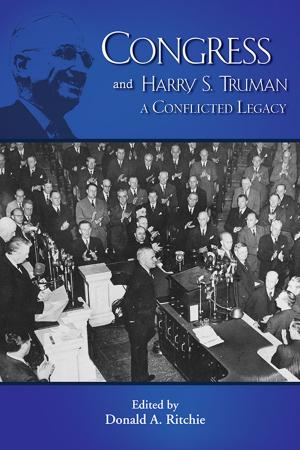| Author: | Rick Fredericksen | ISBN: | 9781476414935 |
| Publisher: | Rick Fredericksen | Publication: | May 31, 2012 |
| Imprint: | Smashwords Edition | Language: | English |
| Author: | Rick Fredericksen |
| ISBN: | 9781476414935 |
| Publisher: | Rick Fredericksen |
| Publication: | May 31, 2012 |
| Imprint: | Smashwords Edition |
| Language: | English |
When combat ceased across Vietnam, it signaled the start of a cold war over the Americans left behind. As family members agonized, nearly 2,500 POWs and MIAs had become human pieces in a diplomatic chess match that outlasted the war itself. U.S. prisoners of war and missing in action were never forgotten in Southeast Asia. In fact, just the opposite. They were a symbolic, last battalion of Americans, working in concert with the U.S. government, to actually win the postwar in Vietnam. Although they could not fight, or even speak out, the POW-MIA voices were heard through their loyal surrogates: especially family members, fellow veterans, POW activists, military investigators, U.S. diplomats, and men who were, or wanted to be, president. Now, almost 40 years after the mass release of POWs by North Vietnam, America is still trying to locate lost patriots and bring them home. During a crucial period spanning the '80s and '90s, the hunt for POWs and MIAs was used to leverage major concessions from the Vietnamese. As a result, tens of thousands of people were saved and lives improved. The drama unfolded in weary negotiating sessions, in steamy jungle searches, and in Hawaii, where identification experts stood in a roomful of stretchers trying to piece together bone fragments. Despite being the most comprehensive manhunt in American history, the mission remained unsatisfactory for many skeptics who believed that live Americans were left behind. A former Marine newscaster, who reported many of these war casualties over the American Forces Vietnam Network, returned to Vietnam repeatedly as he covered the POW-MIA issue from his home base in Thailand. In his 44 year journalism career, author Rick Fredericksen has followed the controversial story in 6 countries, including the pivotal decade that led to normal relations between the former enemies. Rick is the last Bangkok Bureau Chief for CBS News. Updated in 2019.
When combat ceased across Vietnam, it signaled the start of a cold war over the Americans left behind. As family members agonized, nearly 2,500 POWs and MIAs had become human pieces in a diplomatic chess match that outlasted the war itself. U.S. prisoners of war and missing in action were never forgotten in Southeast Asia. In fact, just the opposite. They were a symbolic, last battalion of Americans, working in concert with the U.S. government, to actually win the postwar in Vietnam. Although they could not fight, or even speak out, the POW-MIA voices were heard through their loyal surrogates: especially family members, fellow veterans, POW activists, military investigators, U.S. diplomats, and men who were, or wanted to be, president. Now, almost 40 years after the mass release of POWs by North Vietnam, America is still trying to locate lost patriots and bring them home. During a crucial period spanning the '80s and '90s, the hunt for POWs and MIAs was used to leverage major concessions from the Vietnamese. As a result, tens of thousands of people were saved and lives improved. The drama unfolded in weary negotiating sessions, in steamy jungle searches, and in Hawaii, where identification experts stood in a roomful of stretchers trying to piece together bone fragments. Despite being the most comprehensive manhunt in American history, the mission remained unsatisfactory for many skeptics who believed that live Americans were left behind. A former Marine newscaster, who reported many of these war casualties over the American Forces Vietnam Network, returned to Vietnam repeatedly as he covered the POW-MIA issue from his home base in Thailand. In his 44 year journalism career, author Rick Fredericksen has followed the controversial story in 6 countries, including the pivotal decade that led to normal relations between the former enemies. Rick is the last Bangkok Bureau Chief for CBS News. Updated in 2019.















